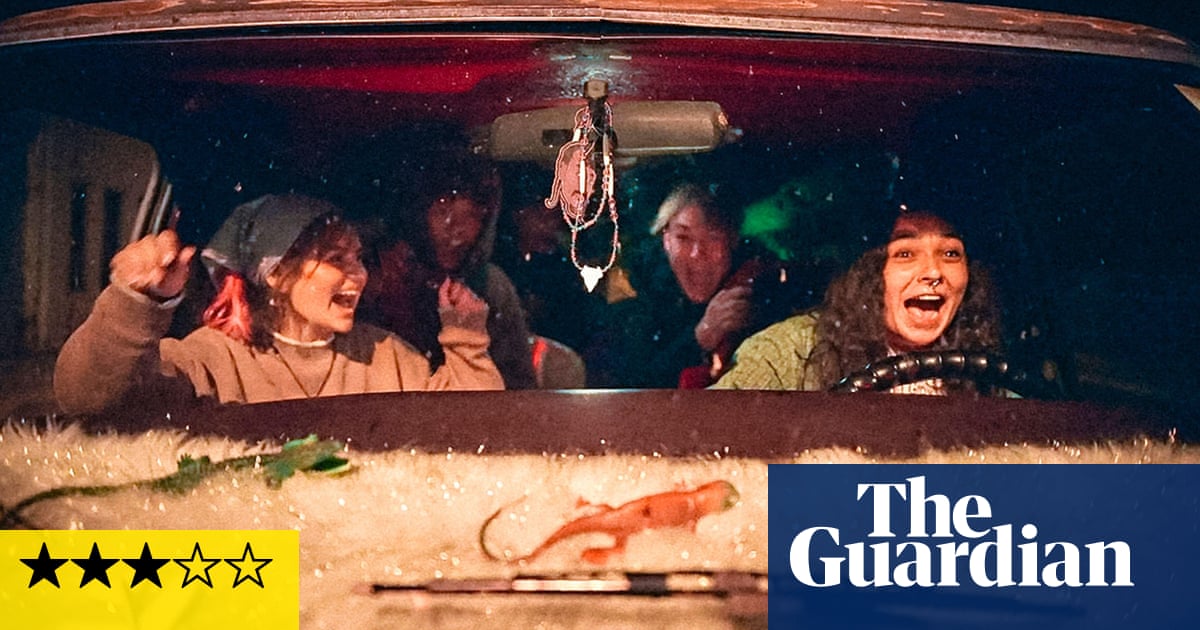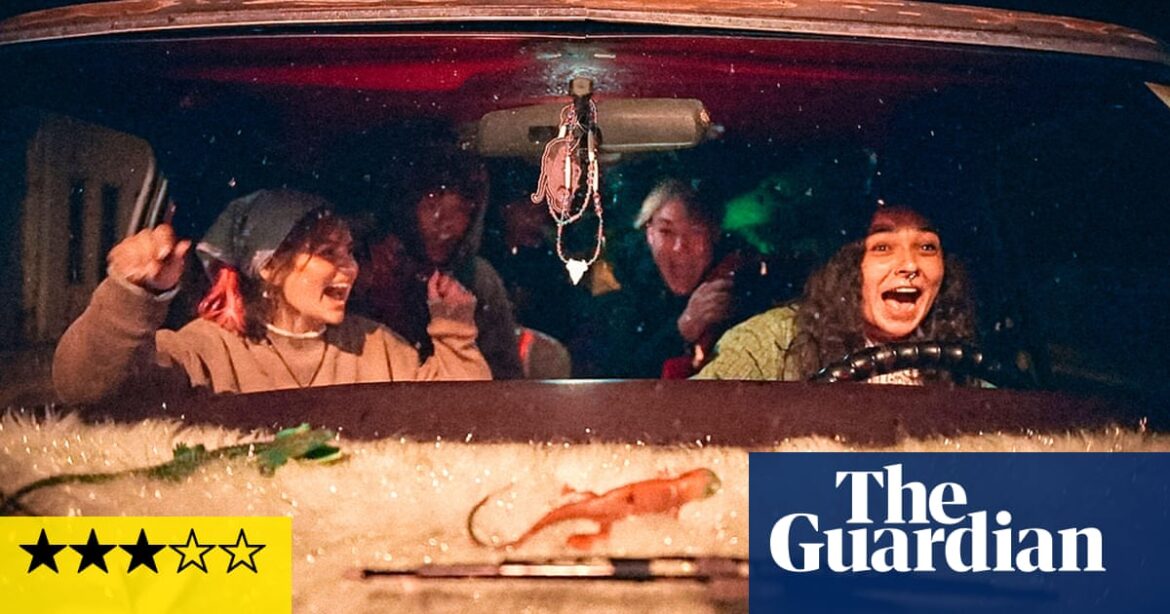
In the opening seconds of the Ross brothers’ new film, a teenager professes his hope to discover a place “weirdos” like him can call home. The opening raises doubts about the novelty of what might follow: the trope of the high school outsider has been endlessly revisited. Gasoline Rainbow – billed as a gen Z road trip movie – starts off by replaying familiar images. As new high school graduates Makai, Micah, Nathaly, Nichole and Tony hit the road across Oregon for one final adventure together, we see the usual trappings of the genre: sing-alongs, parties by the campfire, and leaning out of car windows to enjoy the breeze and sweet call of freedom.
We move into welcome new territory when a mishap leaves their van out of action, and the group are left in the hot desert trying to scrounge a path forward, meeting strangers along the way. Directors Bill Ross IV and Turner Ross are known for blending nonfiction and fiction, and their loose, free-ranging cinéma vérité style. While Gasoline Rainbow is their first fiction feature, there are elements that nod to their DIY sensibilities: the teenagers are first-time actors, share the same names as their characters, and scenes were partly improvised. The result is a movie in the tradition of “vibes” film-making, less interested in a propulsive plot than exploring the revealing and delightful moments that arise from spontaneous human interactions. The group tells onlookers that they have no plan for their journey. It is a fitting statement for the film itself, which ambles along gently, happy to be pulled in new directions, seeing what treasures emerge by chance.
Portraits of the five unfold slowly, building an image of an America that is anxious and unstable, while filled with pockets of kindness. Conversations touch on deportations, police brutality against Black men, and the climate emergency. True to the Ross brothers’ empathetic film-making style – all about looking and listening – these scenes never feel forced, and these topics are, like they are in everyday life, interwoven with personal ruminations. In comparison, other moments – such as when the group frolics on a beach to a stirring upbeat song – feel distractingly sentimental. It is the quieter moments of connection, disclosure and revelation that form the real heart of the film, a tender ode to staying curious and treasuring one’s community.
Source: theguardian.com



